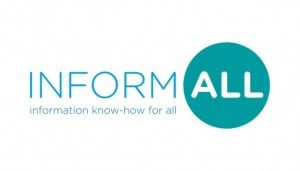The UK Digital Skills Taskforce launched its interim report ‘Digital Skills for Tomorrow’s World’ in July 2014. The following response has been written by Jane Secker, from the CILIP Information Literacy Group, and Stéphane Goldstein from InformAll.



We welcome the publication of this report that highlights the need to equip people with the abilities to survive in the digital world. This issue has been widely recognised by the library and information community and we often call these skills and abilities information and digital literacy. Your report also raises issues issues related to what we would term ‘digital exclusion’ where certain sections of the population have no or limited access to the internet and where information professionals and public libraries specifically can play a key role to help address this. We welcome also the methodological rigour of the research underpinning the report, and its consultative, inclusive nature.
However, it is also apparent to us that the concept of digital skills that you set out focuses heavily on technological skills, articulated notably around ICT and/or computing know-how and confidence. We feel that this suggests too narrow an approach to the relationship that individuals, in a knowledge-based society and economy, need to develop with information. We have referred above to the broader notion of digital and information literacies, and we believe that this represents a more comprehensive way of addressing the key issues underlying your report: equipping people with the knowledge, understanding, skills and confidence that they need to search for, discover, access, retrieve, sift, interpret, analyse, manage, create, communicate and preserve ever-increasing volumes of information, whether digital, printed or oral. It follows that we feel that there is a need to focus on more than simply ‘skills’ – hence the use of the term literacy; and this is why we believe that an emphasis on simply the technological aspects of ‘digital skills’ makes the report less powerful. For example in your report you rightly highlight the ability to search for information as a basic requirement for digital citizens.
However we would envisage digital citizenship not just as the functional skills needed to search online, but also as the ability to evaluate critically information that is retrieved. It is also disappointing that information professionals, who have historically played a crucial role in the promotion of information know-how, were not explicitly included either in the research sample or the project steering group. We would welcome an opportunity to input into the next iteration of the report. We recognise that there are many ways of defining information and digital literacies. For instance, Jisc has devised a more inclusive definition of digital skills, (geared particularly to students)[1], set out as “the capabilities which fit someone for living, learning and working in a digital society”. Jisc deliberately talk about literacies in the plural, because they recognise the complexity of the literacies landscape which includes what some might term : media literacy; communication and collaboration skills; career and identity management; ICT literacy; learning skills; digital scholarship and information literacy (defined as finding, interpreting, evaluating, managing and sharing of information). From another perspective, the Government’s Digital Inclusion Strategy[2] (as formulated by the Cabinet Office, which is responsible for the digital economy) has a simple definition of digital skills: “being able to use computers and the internet”.
However, it recognises that this definition needs to be expanded, particularly to take account of different professional and social circumstances. One of the ten actions of the Strategy is therefore to agree a common definition of digital skills and capabilities. Going beyond terminology, your report rightly recognises the specific challenges for schools around digital skills, arguing for the need for the better teaching of computing in schools, and more resources to achieve this. Once again we would like to see this being broadened beyond computing skills to include such vital information competencies as critical evaluation of sources, an understanding of ethical issues such as privacy and one’s own digital identity. Again this is an area where information professionals and specifically school librarians, already can make significant input. In your section ‘digital by degree’, we welcome the suggestion that universities can play a key role in in partnership with employers, to develop high-level digital skills at undergraduate and postgraduate levels. In fact many are already addressing this, specifically through the work that is being led in many institution by academic librarians. But here too, there is a case for thinking more broadly about how students can be equipped to deploy information-handling know-how in professional environments. Digital skills for life is a key concern for library and information professionals and we welcome your aim to ensure that no-one is excluded from the opportunity of acquiring digital skills, not least disadvantaged groups such as the unemployed.
The recent project Go Digital Newcastle: Connecting our City funded by the CILIP Information Literacy group in Newcastle is a practical example of an innovative initiative, led by Newcastle Public Library, that seeks to address this issue specifically. We would welcome the opportunity of enlarging upon the points that we have raised. We would be happy to meet with the authors or the report or members of the Digital Skills Taskforce to explain further the rationale of our argument that enabling individuals, at all stages in their lives, to handle information provides a vital underpinning that incorporates the digital skills, and a reduction in digital exclusion, that are envisaged in the report.
Jane Secker, CILIP Information Literacy Group
Stéphane Goldstein, InformAll
November 2014
Notes: CILIP is the Chartered Institute for Librarians and Information Professionals, the professional body and advocacy organisation for information, library and knowledge practitioners – http://www.cilip.org.uk/
The CILIP Information Literacy (IL) Group works within CILIP and encourages debate and the exchange of knowledge in all aspects of Information Literacy – http://www.cilip.org.uk/about/special-interest-groups/information-literacy-group
InformAll is a collaborative, multi-agency network aimed at promoting the relevance, importance and benefits of information literacy – http://www.informall.org.uk [1] http://www.jisc.ac.uk/guides/developing-students-digital-literacy [2] https://www.gov.uk/government/publications/government-digital-inclusion-strategy/government-digital-inclusion-strategy
Download the PDF version of Response to Digital Skills for Tomorrow’s World
